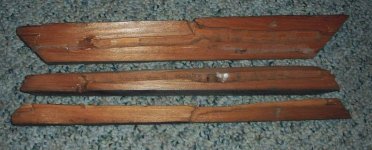s219
Super Member
- Joined
- Dec 7, 2011
- Messages
- 8,548
- Location
- Virginia USA
- Tractor
- Kubota L3200, Deere X380, Kubota RTV-X
BTW, I also used to pretreat everything with Viper insecticide (Cypermethrin) but stopped because it was a chore and I wasn't sure it really helped.


